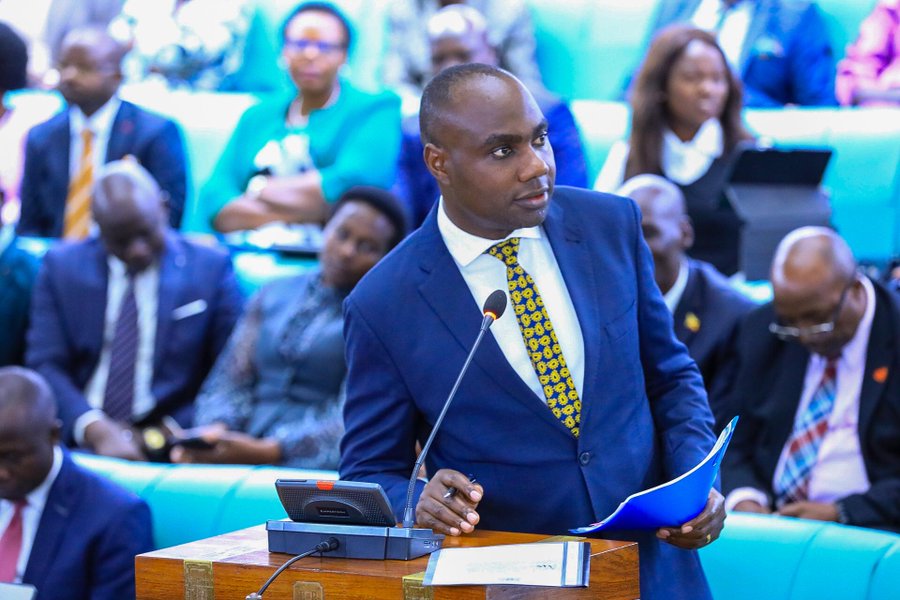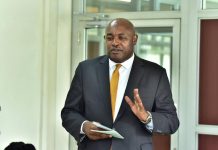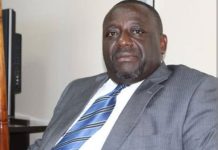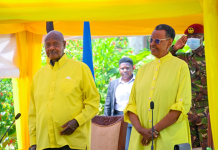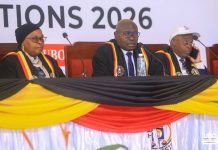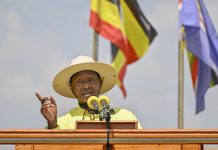Parliament has sanctioned the government’s request to secure a loan exceeding US$190 million from Stanbic Bank Uganda to facilitate the buyout of Umeme Limited, despite apprehensions expressed by lawmakers from the Committee on National Economy.
The endorsement came after an intense debate on Thursday, 20 March 2025, during which Committee Chairperson, Hon. John Bosco Ikojo, presented the committee’s stance that the government should hold off on acquiring the loan until the Auditor General concludes his assessment to ascertain the precise buyout sum.
Although Attorney General Kiryowa Kiwanuka sought to bypass standard procedures and fast-track the loan approval without deliberating on the committee’s report, this did not materialize, as both the majority and minority reports were tabled for discussion.
“The Auditor General has yet to determine the final buyout figure. Given the limited time remaining before Umeme’s concession expires, the Auditor General must urgently coordinate with the Electricity Regulatory Authority (ERA) and Uganda Electricity Distribution Company Limited (UEDCL) to establish the actual cost and submit it to Parliament to guide the loan authorization,” Ikojo stated.
Both majority and minority committee members cautioned against proceeding with the loan due to discrepancies in the estimated buyout sum.
While the Electricity Regulatory Authority initially projected the cost at US$225.7 million, this figure was later revised to US$127.6 million, yet the government requested US$190.9 million.
Bbale County MP, Hon. Charles Tebandeke, who presented the minority report, insisted that approving the loan without the Auditor General’s final confirmation raised transparency issues.
“We cannot sanction a loan when ERA’s latest estimate places the buyout at US$127 million, yet the request before us stands at US$190 million. This inconsistency is alarming,” Tebandeke remarked.
Nevertheless, Minister of State for Finance (General Duties), Hon. Henry Musasizi, urged Parliament to authorize the loan without further postponement, warning that any delay could disrupt the transition process and expose the government to hefty financial penalties.
“The government is legally mandated to compensate Umeme, and failure to do so within the stipulated period will result in significant interest penalties,” he emphasized.
Maracha County MP, Hon. Denis Oguzu Lee, raised concerns over the absence of a comprehensive asset register, questioning whether the government had full knowledge of what it was acquiring.
“What are Umeme’s assets and liabilities? Are there pending tax obligations or unresolved environmental compliance matters? If these liabilities fall on the government, who will be held accountable?” Oguzu queried.
Speaker Anita Among criticized the government’s timing, stating that the buyout should have been handled much earlier rather than being addressed just nine days before the concession’s expiration.
However, Attorney General Hon. Kiryowa Kiwanuka defended the timing, arguing that the terms of the concession agreement stipulated that the buyout process could only be executed upon contract completion.
Hon. Okiror John Bosco (NRM, Usuk County, Katakwi) supported the loan approval, stressing that Uganda could not afford further delays in settling the matter.
The Speaker directed that only the amounts verified by the Auditor General should be disbursed to prevent overpayment.
Parliament Approves Additional Loans to Boost UDB
In a related development, Parliament also sanctioned two significant loans to strengthen the financial capacity of the Uganda Development Bank (UDB).
The House authorized a US$100 million loan from the Arab Bank for Economic Development in Africa (BADEA) and the OPEC Fund for International Development (OFID) to reinforce UDB’s financial standing.
Additionally, another US$100 million loan was approved for UDB to obtain funding from the Islamic Development Bank (IDB), the Islamic Corporation for the Development of the Private Sector (ICD), and the International Islamic Trade Finance Corporation (ITFC).
However, Hon. Godfrey Onzima (Aringa North County MP) raised concerns that UDB’s funding predominantly benefits a limited group of Ugandans and does not equitably reach all regions of the country.
Speaker Among echoed similar sentiments, questioning whether Ugandans residing outside Kampala had equal access to UDB’s financial support.
“We must ensure fairness in the allocation of these funds. It should not be that some regions are excluded from benefiting. The sectoral committee must oversee equitable distribution of these loans,” Among emphasized.
In response, Minister Musasizi assured Parliament that a detailed breakdown of UDB’s fund distribution across the country would be provided to guarantee transparency.
Hon. Esther Apwoyochan (NRM, Zombo District Woman Representative) acknowledged UDB’s positive impact but conceded that not all regions had reaped equal benefits.
“Although not everyone has accessed the funds, boosting UDB’s financing will empower more Ugandans and expand its reach,” she remarked.
With these loan approvals, the government is expected to expedite the Umeme buyout process and enhance financial accessibility through UDB, despite persistent concerns from certain legislators.


